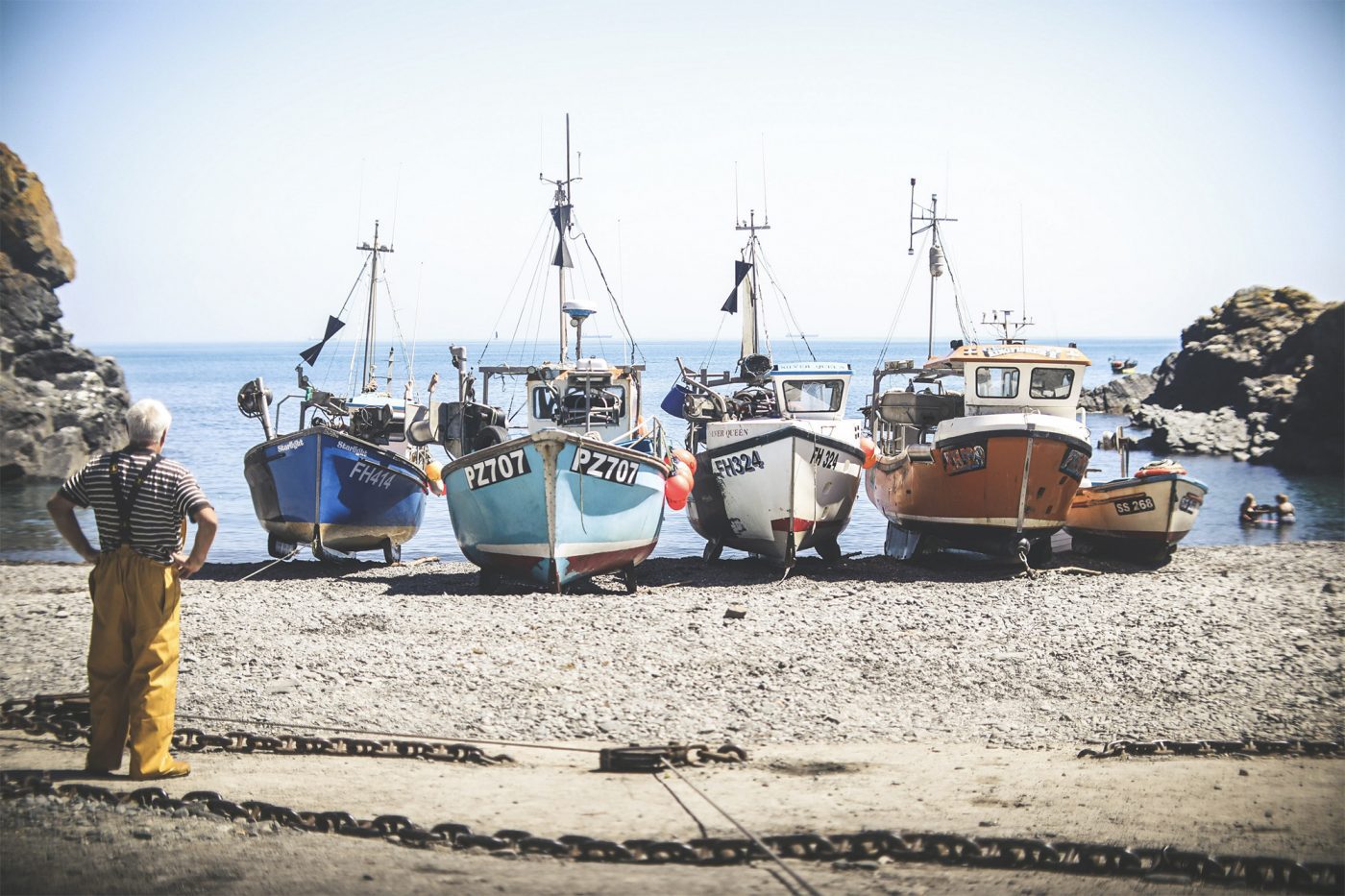14 May 2010
The fishing industry in the South West came together in Exeter on 5th May to discuss initial Marine Conservation Zone (MCZ) proposals being planned under the Finding Sanctuary project.
The meeting was attended by a number of the fishing industry representatives involved in the project and included a range of fishermen’s associations including South Devon and Channel Shellfishermen, North Devon Fishermen’s Association, Clovelly Fishermen’s Shellfish Association, as well as the South West FPO, Cornish FPO, NUTFA and the NFFO South West Committee. The meeting is the first of what is intended to be a regular forum open to all industry representative bodies in the South West towards taking a united stance in responding to proposals that will work closely with the MPA Fishing Coalition.
Following a government intention to designate a UK network of Marine Protected Areas by 2012, the Finding Sanctuary project aims to put forward its network recommendations for the south west by June 2011. Participants noted that whilst the industry was prepared to engage in the process of MCZ planning, there remained a host of issues that needed resolving before an effective engagement could proceed and it would be unacceptable to cut corners to meet what was increasingly being regarded as a hopeless timeframe for planning the network. These included that:
- Publically held fisheries data had to be broken down by sector and presented to the industry in order to support the examination of proposals and allow for the verification of the data. Data from other European fleets also needed to be included. The industry was in no mood to respond to proposals in the absence of adequate knowledge that could result in the placement of MCZs that disadvantaged one part of industry over another.
- The purpose for proposed designations had to have a clear rationale. While draft ecological network guidance had been issued, only a 3.5 week informal consultation on matters of clarity had been conducted, precluding any comment on the substance of the guidance. Research that underpinned the guidance had also been absent in the consultation. This matter was currently being taken up by the MPA Fishing Coalition and highlighted that in pursuing such an unrealistic timeframe, government was increasingly prepared to ride roughshod over any modicum of democratic process.
- It was critical that management measures applying to each zone had to be made clear. An example of this issue was given in the initial selection of the area covering the mid channel potting agreement. Proposals could not be accepted that would mean upsetting an effective means of managing fishing activity in an area that had persisted for years.
It was noted that in European waters mechanisms for managing the fishing activities of other nations within MCZs had to be consistent with the CFP and the application of measures risked being discriminatory and could be rejected. Furthermore, an overzealous selection of MCZ sites in inshore waters due to relatively higher levels of environmental data or due to lobbying by groups that had no knowledge of what was beyond their line of sight of the coastline threatened the existence of inshore vessels which would be unable to relocate their fishing activities. Existing inshore SAC proposals in the South West already threatened the industry and their coverage went well beyond the area requirements for those features in the draft MCZ ecological network guidance.
John Butterwith Chief Executive of the North Devon Fishermen’s Association who chaired the meeting said: “We could all approach the MCZ planning process as individuals only concerned about the areas where we fish. The meeting, however, demonstrated that we are united in our purpose and that we are prepared to act together which is hugely encouraging. Now is not the time for challenging one another when such plans threaten the very existence of our fishing communities and come at a time when multiple polices that do not consider the cumulative impacts on our industry are upon us. I encourage all fishermen to ensure that their voice is heard through their representative bodies at the local, regional and national levels.”
Paul Trebilcock Chief Executive of the Cornish Fish Producers Organisation said:
“This is an extremely difficult and complex process; we at the CFPO have carried out comprehensive mapping of inshore fisheries around the Cornish coast from the 0 to 12 mile limit. However, it remains difficult to engage fully in a process when management proposals have not been defined, the European angle not satisfactorily resolved and fishermen’s livelihoods remain threatened for no clear objective. The CFPO is committed to this process but it must be a genuine and transparent process and not just rushed through to meet artificial deadlines. If we are going to do this then let’s do it properly.”
Representative bodies wishing to receive notice of future meetings should register interest through the NFFO offices: 01904 635430 begin_of_the_skype_highlighting
01904 635430 FREE end_of_the_skype_highlighting, nffo@nffo.org.uk.

